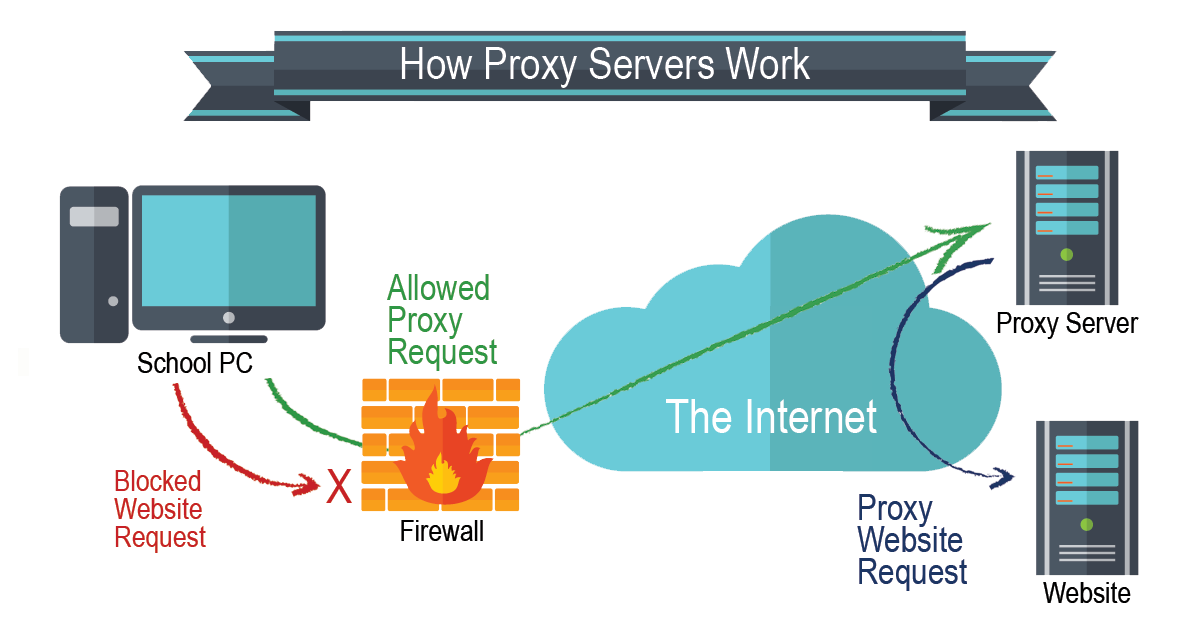In the current digital landscape, internet safety and privacy are increasingly top priorities for many online users. As we navigate an ever more interconnected world, the need to protect our personal information and ensure online anonymity is at an all-time high. One effective solution for addressing these concerns is the use of proxy servers. But what exactly are a proxy server, and what is their function? This guide will walk you through the key steps to set up your own proxy server while examining the multiple benefits and kinds of proxies available.
Whether you want to boost your internet privacy, gain access to geo-blocked content, or improve your gaming experience, grasping the concept of proxy servers can unlock a realm of opportunities. From understanding the differences between proxies and VPNs to examining how businesses use proxies for cybersecurity, this article will equip you with the knowledge you need to formulate wise choices about your digital footprint. Come along as we explore the setup process and uncover the various perks that come with utilizing a proxy server.

Comprehending Proxy Server servers
Proxy server act as intermediaries between your device and the web. When you submit a call to get a website, the call firstly goes through the proxy server, which sends it to the final server. This means your identity is hidden from the website you are visiting, and the site only sees the internet protocol address of the proxy server. This process lets individuals to boost their privacy and security while surfing the internet.
There are different forms of proxy server, each with its unique functionalities and applications. The most frequent types include HTTP proxies, which are used for internet traffic; SOCKS servers, which can handle any form of network traffic; and transparent proxies, which operate without altering calls. Understanding the differences between these proxy kinds is crucial for picking the correct one for your requirements, whether for personal use or business applications.
Using a proxy server provides several gains, notably regarding online privacy and safety. By concealing https://yamcode.com/proxy-systems-the-ultimate-tool-for-online-privacy , these intermediaries help shield your data from servers and potential hackers. They also include additional capabilities such as content filtering, advertisement blocking, and storing data, which can boost browsing efficiency and security. However, it is crucial to pick dependable proxy providers to secure effective protection and minimize risks.
Advantages and Risks of Using Proxies
Using proxy servers offers a range of benefits that can improve your internet experience. One of the main benefits is enhanced anonymity. Proxies can mask your IP address, making it harder for sites and services to monitor your online behavior. This layer of privacy is particularly helpful when accessing sensitive information or when you want to escape targeted advertisements. Additionally, proxies can provide access to geo-restricted material by redirecting your connection through servers located in different regions, allowing you to enjoy streaming services and sites that may be blocked in your area.
Despite these benefits, there are inherent dangers associated with using proxies. One of the significant concerns is safety, especially when using free proxies. These services may log your actions or even insert malicious data into your connection, putting your personal information at risk. Additionally, not all proxies provide encryption, which is crucial for safeguarding your information from potential eavesdroppers. As a result, it's important to choose reputable proxy services and be aware of their privacy policies to reduce these risks effectively.
Another important factor is the potential for slower internet speeds. While some proxies can boost performance in specific scenarios, others may introduce lag due to their redirection methods. This can be particularly troublesome for activities such as gaming or streaming high-definition content. It's crucial to evaluate the type of service you choose, as certain options, like home IPs, may provide superior speed and reliability compared to free or public proxies, offering a more seamless user experience.
Opting for The Best Proxy for Your Needs
As selecting a proxy server, it becomes crucial to think about your specific needs to secure best performance and security. Diverse types of proxies serve varied purposes, whether for surfing anonymity, streaming, or data scraping. For example, HTTP proxies tend to be perfect for web browsing, while SOCKS proxies deliver higher versatility for different types of traffic. Assess whether or not you want a residential proxy for a genuinely genuine browsing appearance or a data center proxy for faster performance.
Furthermore, keep in mind the level of privacy and security you require. Proxies can change in the encryption methods they support, impacting your online safety and data protection. If gaining access to sensitive information, choose proxies that provide robust encryption. It is crucial to investigate the reputation of the proxy service to confirm they do not log your activity or sell your data.
Finally, take into account the geographic needs of your activities. If you intend to bypass geo-restrictions for streaming or gaming, select a proxy that can effectively mask your IP address in the desired region. Check user reviews and testing results, as this can uncover how well a proxy performs under multiple conditions. By diligently assessing these factors, you can select a proxy that fits your needs and enhances your online experience.
